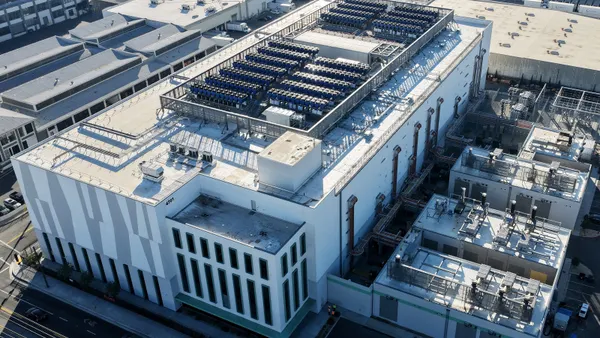Dive Brief:
- General Motors (GM) will end production of several passenger models, including the partially electric Chevy Volt, and will cut 15% of its workforce while boosting investments in electric and autonomous vehicles, the company announced. Five American factories could potentially be shuttered amid the restructuring.
- In a release, GM said it will "prioritize future vehicle investments in its next-generation battery-electric architectures." According to reports, GM CEO Mary Barra promised to double investments in electric and self-driving cars over the next two years.
- USA Today reports that the automaker will discontinue five models: the Volt, the Chevrolet Cruze compact sedan, the full-size Chevrolet Impala, the Cadillac XTS, the Buick LaCrosse. The Cadillac CT6 will not be sold in the U.S., but will be produced for the Chinese market.
Dive Insight:
GM has signaled that its future runs through full electric vehicles, promising to release more than 20 electric models around the world by 2023. The cancelation of the Volt, one of the first mass-market battery-powered cars on the market, comes as a shock, but signals that GM is looking past semi-electric to market full battery-powered vehicles. It also comes after the company controversially called on the U.S. government to institute a national electric vehicle (EV) mandate.
Of course, the move also comes with significant economic pain. As many as 8,000 jobs will be cut and the company says it could close factories in Michigan, Ohio and Maryland. The United Auto Workers union said the move "will not go unchallenged," and politicians on both sides of the aisle have said they’ll fight to save the jobs.
"This industry is changing very rapidly," Barra said during a press conference, according to Reuters. "These are things we are doing to strengthen our core business."
It does reflect an expected labor shift as the transportation sector goes increasingly digital and focuses on self-driving vehicles. A recent Brookings Institution analysis found that some 9.5 million jobs across several sectors will be affected — though not necessarily lost — amid the digitalization of transportation, especially in manufacturing. Automakers have increasingly partnered with tech firms or focused new hiring on tech skills in anticipation of the rise of autonomous vehicles and artificial intelligence driving systems.
The new investments in GM’s Cruise autonomous driving division will bolster the automaker’s move to commercialize self-driving technology, including a planned fleet of autonomous ride-sharing vehicles set to launch in several cities next year.













